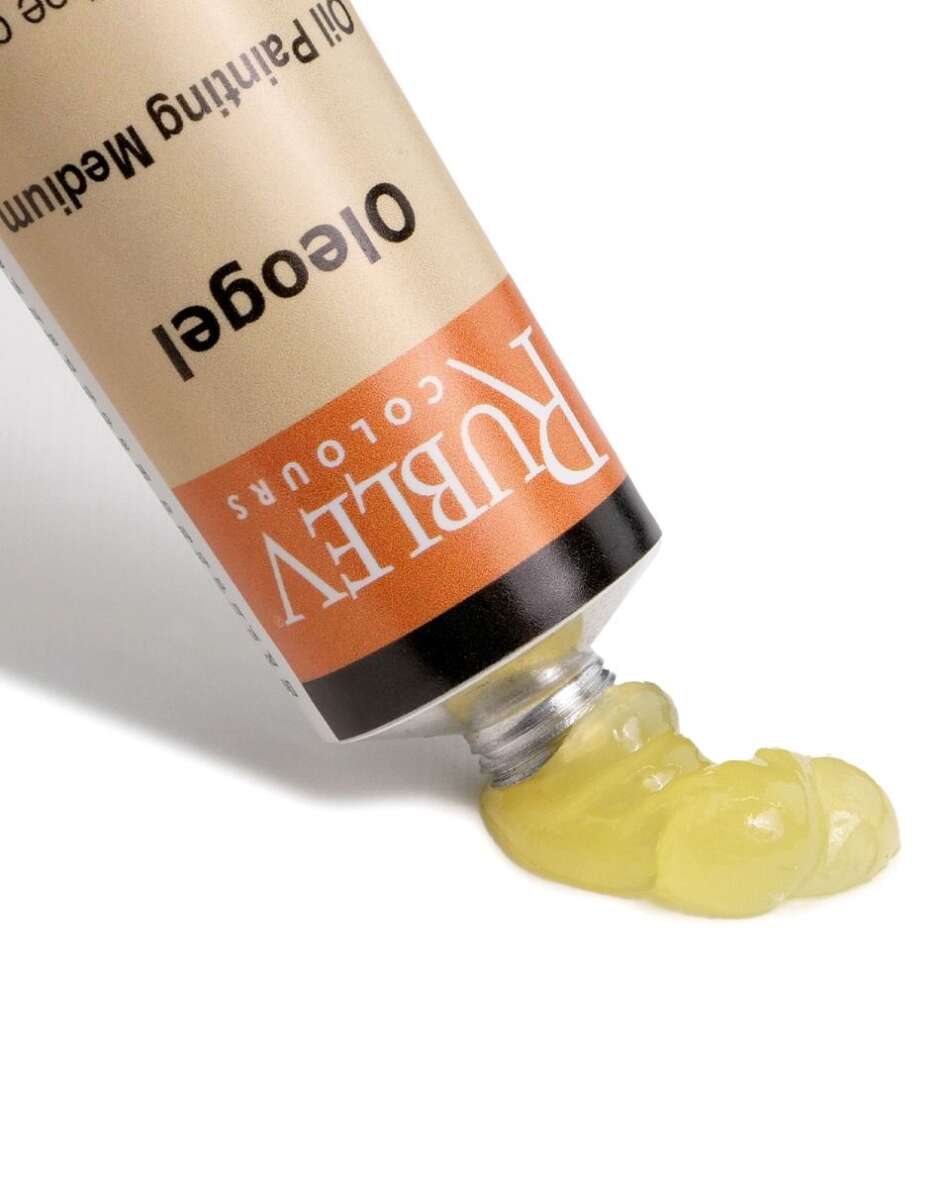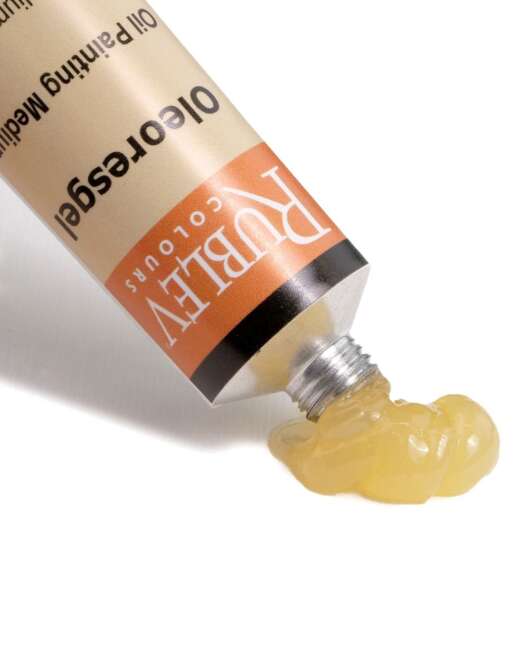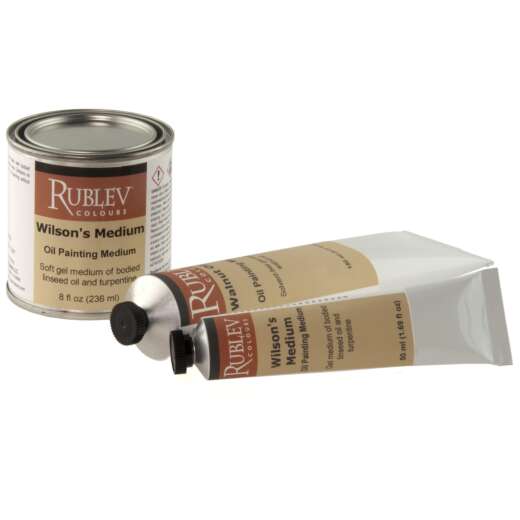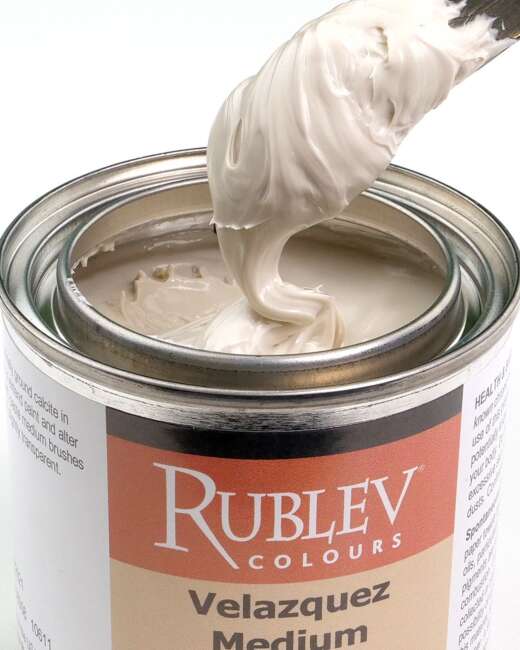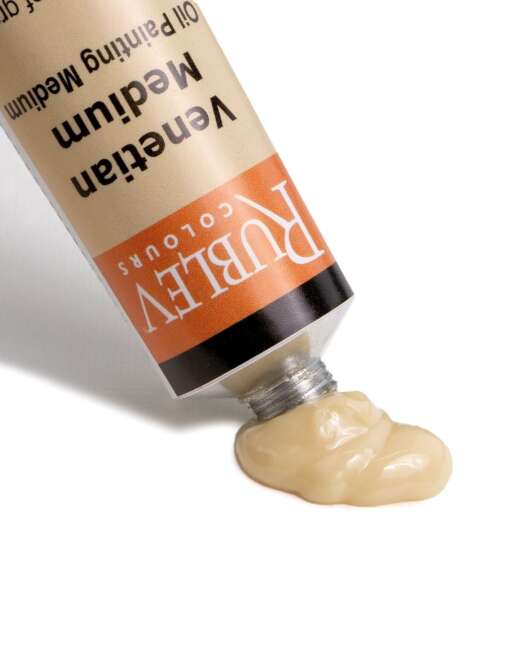The best medium for oil painting varies depending on the artist's technique and desired outcome. While Oleogel is excellent for creating a transparent layer without the worry of cracking, other mediums like linseed oil or boiled oil (stand oil) are also popular for different effects.
Oleogel: Revolutionize Your Oil Painting with Our Solvent-Free Painting Medium
Oleogel is a thixotropic painting medium made with linseed oil and pyrogenic silica that adds transparency and thixotropic body to oil, resin-oil or alkyd paint.
Oleogel is an oil painting medium made with linseed oil and pyrogenic silica. Oleogel is a clear pale amber gel that adds transparency and a thixotropic body to oil, resin-oil, or alkyd paint. Add directly to your paint to give it transparency without thinning its consistency. Add pigments or extenders to thicken it to create impasto effects that do not sink in.
Oleogel does not contain driers, so it is safe to use in oil painting without worrying about cracking. When mixed with colors, Oleogel does not slow the drying time.
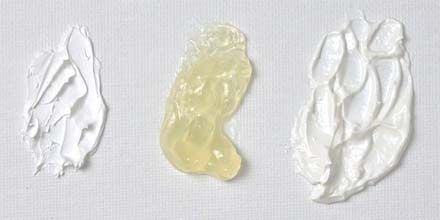
Oleogel adds transparency to whites without losing the body of the paint
Oleogel oil painting medium is in the center, Flake White is on the left, and a mixture of Oleogel and Flake White is on the right. The Flake White is stiff, plastic, and short, but when mixed with Oleogel, the mixture is semi-transparent, soft, yet sculptural.
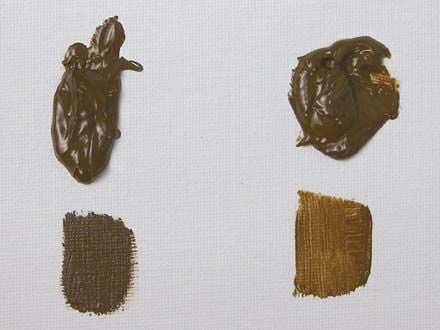
Oleogel increases transparency without flow out and leveling.
Rublev Colours French Raw Sienna is on the left, and a mixture of Oleogel oil painting medium and Raw Sienna is on the right. Below each is a brush out of the above examples. Rublev Colours French Raw Sienna is long yet holding strokes well. When Oleogel is added to Raw Sienna, it increases transparency without causing the flow out and leveling of brushstrokes.
How to Use Oleogel Oil Painting Medium
Mix Oleogel oil painting medium directly into your paint right on the palette. We recommend using a palette knife to obtain the smoothest and most homogenous mixture.
Do not add large amounts of Oleogel to oil paint because this may significantly increase the drying time. Start by adding 10% to 20% by volume of Oleogel to oil paint, and adjust accordingly.
Make Oil Paint with Oleogel
To make your own oil paint with Oleogel, add Oleoge directly to a pile of pigment powder until a stiff paste is obtained (almost the consistency of putty). Grind the paste with a muller on a flat surface until you obtain the desired consistency. Add more pigment or Oleogel as needed. Store the mixed paste in a collapsible tube. Some of its thixotropic properties may be temporarily lost when grinding Oleogel with a muller but may be restored when allowed to stand. The pigment will alter these properties.
Solvent Free, Sustainable Oil Painting Medium
Oleogel oil painting medium does not contain any solvents or harmful substances, so it does not present a health hazard. Since it consists almost entirely of linseed oil, it is also a sustainable and eco-friendly oil painting medium.
No acute or known chronic health hazards are associated with this product's anticipated use (most chemicals are not thoroughly tested for chronic toxicity). Protect yourself against potentially unknown chronic hazards of this and other chemical products by keeping them out of your body. Do this by avoiding ingestion, excessive skin contact, and inhaling spraying mists, sanding dust, and vapors from heating. Conforms to ASTM D-4236.
Thomas Kegler's Use of Oleogel in Glazes
Frequently Asked Questions
What is the best medium for oil painting?
What is the best glazing medium for oil painting?
A good glazing medium should be transparent and slow-drying to allow for smooth blending. Oleogel is a great option for its transparency and ease of use, but other choices that provide faster drying, such as Pale Drying Gel, are an excellent choice.
What are the 3 best mediums for painting?
The three best mediums can be subjective, but commonly, linseed oil for oil painting, acrylic medium for acrylics, and water for watercolors are considered top choices. Each medium brings out the best qualities in its respective paint type.
What is the hardest medium to paint with?
The difficulty of a painting medium is subjective and varies from artist to artist. However, many consider watercolor challenging due to its fluid nature and the difficulty in correcting mistakes.
What is the most realistic painting medium?
Oil paint is often hailed as the most realistic painting medium due to its versatility and the depth of color it can achieve. Its slow drying time allows for detailed blending, which is crucial for realistic artwork.
What medium do most painters use?
The choice of medium varies widely among painters. While oil paint is historically popular for its rich texture and durability, many modern artists also prefer acrylics for their versatility and faster drying time.
What art medium did Vincent van Gogh use?
Vincent van Gogh is renowned for his oil paintings. He used highly chromatic colors and bold brushstrokes, which were characteristic of his emotionally charged and expressive works. There is little to no evidence that he used any particular oil painting medium but rather used paint directly from the tube by squeezing large quantities onto his palette.
What are the 4 traditional painting mediums?
The four traditional painting mediums are oil, tempera, watercolor, and gouache. Each has unique properties and is chosen by artists based on the desired texture, finish, and drying time.
| SKU | 530-430 |
|---|---|
| Brand | Rublev Colours |
| Vendor | Rublev Colours |
| Processing Time | Usually ships the next business day. |
Health and Safety
There are no acute or known chronic health hazards associated with the anticipated use of this product (most chemicals are not fully tested for chronic toxicity). Always protect yourself against potentially unknown chronic hazards of this and other chemical products by keeping them out of your body. Do this by avoiding ingestion, excessive skin contact, and inhalation of spraying mists, sanding dusts and vapors from heating. Conforms to ASTM D-4236.

